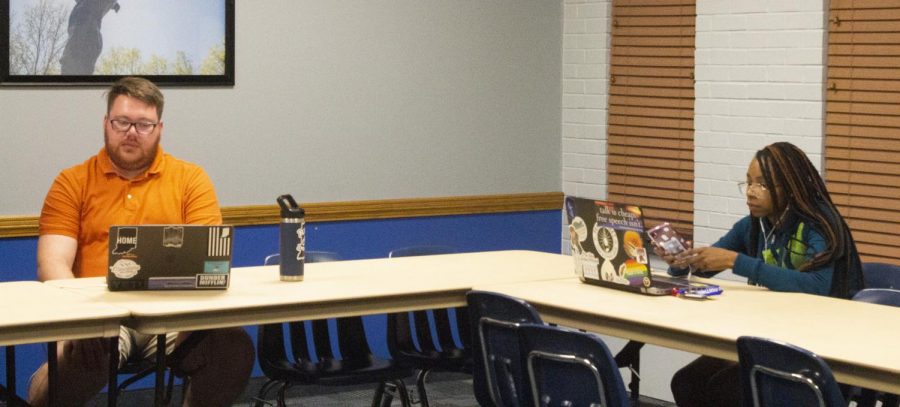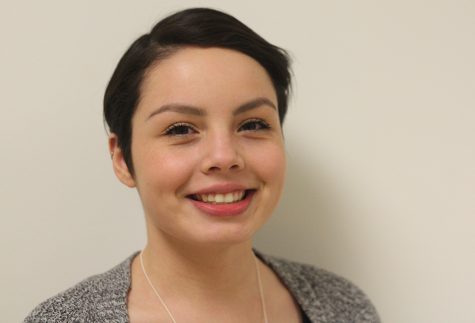Game night held for ‘Chasing the American Dream’ series
Civic volunteer prepare for their event at Paris room in the union. The event was an iCivics game night.
September 23, 2019
The Paris Room in the Martin Luther King Jr. University Union was quiet; the ticking of the clock could be heard over the three students at their computers.
A game of wits, espionage and strategy was afoot on their screens at the first iCivics game night Monday.
Students brought their own laptops and were able to take control of a simulated nation on their devices.
The event was put on by the Eastern Office of Civic Engagement and Volunteerism and was part of their “Chasing the American Dream” series.
Alex Martens, graduate student studying college student affairs, led the event.
Last April the Office of Civic Engagement and Volunteerism test piloted another game through the iCivics website.
“The students that were there (at the test pilot) really enjoyed the game and really encouraged us to keep going with it,” Martens said.
They decided to mix things up a bit and chose a different game for the iCivics game nights.
When Martens was involved last year, he thought the office focused mostly on the volunteerism side of things.
“This year we’ve put a lot of effort into trying to fit, and focus on, the civic engagement portion,” Martens said.
Though the attendance for the game night was low, only three students were in attendance, not including Martens and his co-facilitator, Sophie Cieslicki, graduate student studying college student affairs, Martens said attendance depends on the night that the events happen as well as the type of event.
“We had our first Ted Talk on Sept. 11, and we actually had over 50 students show up, which was amazing,” Martens said.
Snacks were available to students, and prizes were given out to those who successfully finished the game.
Each game and player had a randomly generated goal that required players to collect a certain number of one of four types of resource cards.
During the span of each turn players had to solve different types of crises that arose within their country or in one of the other countries they were playing against.
They did this by distributing resources to other nations or to ask for resources from others; if the crisis was solved successfully, players were awarded more cards.
Derek Deeney, a graduate student in the college of student affairs, said he found the game to be pretty user friendly. He said he plans to attend the other game nights.
“It seems like a fun thing to do, and I’m enjoying myself,” Deeney said as he worked on round 12 of his game.
“It’s almost like playing a game of chicken. Who’s going to fold first?” Martens said.
The first student to successfully complete the simulation was Brianna Hull, freshman political science and public relations major.
Zoe Donovan can be reached at 581-2812 or [email protected]




















































